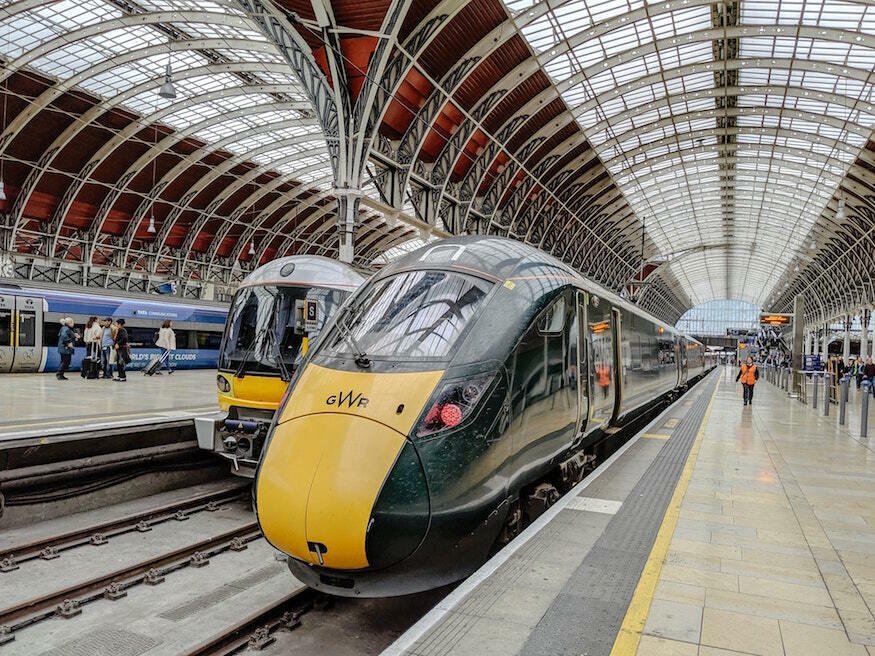Rail Strikes in Britain
Due to disputes over pay and redundancies, union leaders have confirmed that a series of rail and Tube strikes will go ahead this week in the UK. Just 20% of services will be running during this three-day strike period, the biggest train strike for three decades, and an event that will affect millions of commuters.
When are the strikes?
The strikes are scheduled for Tuesday 21st, Thursday 23rd and Saturday 25th June. The RMT (Rail, Transport and Maritime) union and Unite unions are also taking part in industrial action that will affect the London Underground on Tuesday 21 June. Although the strikes will only officially occur during those 3 days, Network Rail has warned that the strikes will lead up to six days of disruption to services due to knock-on effects on services in the days between.
Who is affected?
The strikes, carried out by approximately 40,000 rail workers, will impact millions of commuters and disable several services throughout the week. According to Network Rail, around half of Britain's railways will be open on strike days, with very limited services running on lines. There will be no service in locations such as Penzance in Cornwall, Bournemouth in Dorset, Swansea in South Wales, Holyhead in North Wales, Chester in Cheshire and Blackpool, Lancashire.
Significantly, 90% of ScotRail trains will also be cancelled during these strikes and ScotRail is to only operate a very limited service on five routes - all of them in the central belt. Consequently, this week’s three-day rail strike will cut off communities outside of central Scotland and particularly impact the north of the country, which business leaders have described as being “cut-off”. Indeed, Fergus Mutch, a representative of Aberdeen and Grampian Chamber of Commerce, has said that the railway strikes will hit the northern economy hard and would mean lost revenue for shops and bars.
"It's going to be a nightmare for business travellers, for those going to and from work, for people travelling for leisure, at the start of the peak of Scotland's tourist season, visitors to this country flooding in, restricted services or non-existent services.”
Why are workers striking?
Union members voted overwhelmingly for action last month in a dispute over pay and job losses. Mick Lynch, the general secretary of RMT, has attributed the decision to carry out next week’s rail strikes to the government’s “appalling” treatment of the rail workers who perservered through the pandemic only to face pay freezes and hundreds of job cuts.
“We have a cost-of-living crisis, and it is unacceptable for railway workers to either lose their jobs or face another year of a pay freeze when inflation is at 11.1 percent and rising.”
Indeed the government’s decision to cut £4bn of funding from our transport systems - £2bn from National Rail and £2bn from Transport for London has been under controversy and has been described as the main reason for these strikes.
Government reaction
The government has urged unions to stop their action and Transport Secretary Grant Shapps told the Commons that the rail strikes are “entirely pointless” and “counterproductive” seeing that the pay freeze on rail staff was “coming to an end”. He also went on to justify government actions citing how the government protected the railways during the pandemic with a package equal to “£160,000 per rail worker” and how "this level of subsidy... simply cannot continue forever”.
Leader of Opposition, Keir Starmer, accused Shapps of wanting the strikes to go ahead in order to sow division during a local government conference: “They want the country to grind to a halt so they can feed off the division. Instead of spending their time this week around the negotiating table, they are designing attack ads.” However, the transport secretary quickly dismissed this claim as a “crazy” idea. “In what sort of crazy world would anyone want to see our transport sector grind to a halt?”
Overall, however, it appears that the Conservative government has done relatively little to prevent the rail strikes, as evident with Shapps’ claim that “it is not for the government to intervene to stop rail strikes” and are waiting to see the implications of the strikes before further action.
by Connie Kiew

